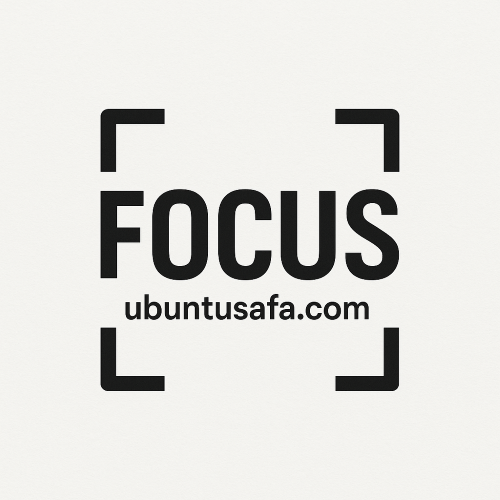How does the diversity of Nigeria’s ethnic and religious groups shape national identity?

Nigeria's incredible diversity, with over 250 ethnic groups and a near even split between Christianity and Islam, profoundly shapes its national identity.
It's a complex interplay of unity and division, celebration and challenge.
Here's how this diversity shapes national identity:
1. A Source of Richness and Vibrancy (Positive Shaping):
-
Cultural Tapestry: The sheer variety of languages, traditions, music, dances, cuisines, and art forms from groups like the Yoruba, Igbo, Hausa-Fulani, Ijaw, Edo, Tiv, Kanuri, and many more, creates an incredibly rich and dynamic cultural landscape. This diversity is often celebrated in national events, festivals, and cultural expressions like Nollywood, which draws on diverse narratives.
-
Resilience and Adaptability: Nigeria's ability to remain a unified entity despite immense internal pressures often stems from the inherent resilience and adaptability of its people, who have learned to navigate complex social interactions.
-
"Unity in Diversity" Ideal: The national motto "Unity and Faith, Peace and Progress" reflects an aspiration to forge a cohesive identity from its disparate parts. This ideal is continuously emphasized in national discourse and symbols.
-
Global Recognition: Nigeria's diverse cultural output, particularly in music (Afrobeats) and film (Nollywood), has gained global recognition, contributing to a distinct Nigerian identity on the international stage.
2. Challenges and Divisive Dynamics (Negative Shaping):
-
Regional and Group Loyalty over National Identity: Historically, and even in contemporary times, primary loyalty often lies with one's ethnic or religious group, rather than with the broader Nigerian state. This "us vs. them" mentality can undermine national cohesion.
-
Politicization of Identity: Political elites frequently exploit ethnic and religious differences for political gain, mobilizing groups along these lines to secure power and resources. This instrumentalization of identity often exacerbates tensions and conflict, making it difficult to forge a genuinely shared national purpose.
-
Competition for Resources and Power: The struggle for control over political power, economic resources (including oil revenues), and national opportunities often takes on ethnic and religious dimensions. This leads to accusations of marginalization, nepotism, and unfair distribution, fueling grievances.
-
Ethno-Religious Conflicts: Sadly, Nigeria has experienced numerous violent ethno-religious clashes, particularly in the Middle Belt and North, with devastating consequences. These conflicts erode trust between communities and make it harder to build a common identity.
-
The "Federal Character" Principle: While designed to ensure equitable representation of all ethnic and religious groups in government appointments, public service, and resource allocation, its implementation has been criticized for:
-
Prioritizing Quota over Merit: This can lead to a less efficient civil service and a perception of unfairness.
-
Reinforcing Divides: By explicitly acknowledging and managing differences, it can inadvertently entrench ethnic and religious consciousness rather than transcend it.
-
-
Lack of a Strong Shared Narrative: Unlike some nations forged through a common struggle against an external oppressor, Nigeria's amalgamation by the British colonialists in 1914 brought together distinct entities, making the creation of a deeply internalized, overarching national narrative a continuous challenge. The civil war (1967-1970) further highlighted and deepened these fissures.
-
Religious Extremism: The rise of groups like Boko Haram, fueled by a radical interpretation of Islam, has introduced an extreme dimension to religious identity, directly challenging the secular nature of the Nigerian state and further dividing society.
Striving for a Cohesive Identity:
Despite the challenges, many Nigerians identify strongly with their nation, particularly in the face of external pressures or in shared moments of national pride (like sporting victories). The ideal of "One Nigeria" remains a powerful aspiration.
The ongoing process of shaping Nigeria's national identity involves:
-
Promoting Inclusive Governance: Ensuring that all groups feel represented and have a stake in the political and economic system.
-
Investing in Civic Education: Fostering a sense of shared citizenship and national loyalty from an early age.
-
Strengthening Institutions: Building strong, impartial institutions that can mediate conflicts and ensure justice for all, regardless of ethnic or religious affiliation.
-
Encouraging Inter-Group Dialogue and Understanding: Initiatives that promote cross-cultural and inter-faith interactions.
-
Leadership Role: Political and religious leaders playing a unifying role rather than exploiting divisions.
In essence, Nigeria's national identity is a work in progress, constantly shaped by the tension between its remarkable diversity and the imperative for unity. It's a testament to both the beauty and the complexity of a multi-ethnic, multi-religious state.
- Questions and Answers
- Opinion
- Motivational and Inspiring Story
- Technology
- Live and Let live
- Focus
- Geopolitics
- Military-Arms/Equipment
- Security
- Economy
- Beasts of Nations
- Machine Tools-The “Mother Industry”
- Art
- Causes
- Crafts
- Dance
- Drinks
- Film/Movie
- Fitness
- Food
- Games
- Gardening
- Health
- Home
- Literature
- Music
- Networking
- Other
- Party
- Religion
- Shopping
- Sports
- Theater
- Health and Wellness
- News
- Culture

